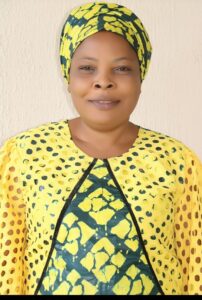

By Dada Ahmed in Lokoja.

Dr.Esther Audu.
Dr. Stella Audu, National President of the Women in Agriculture Cooperative Federation (WIACF), has advocated for greater access to the Kogi State annual budget for women in agriculture, emphasizing the need for their active involvement in farming to enhance food production and security.
In an interview with the correspondent of The Reporters in Lokoja on Monday ,Dr. Audu expressed concern that while women in agriculture are included in the state budget, they have not been able to access those funds.
This limitation, she noted, has discouraged many aspiring female farmers.
To counter these challenges, Dr. Audu announced plans for a solar irrigation project in collaboration with the World Bank, aiming to support 10,000 farmers—70% men and 30% youth.
She urged the state government to partner with WIACF in subsidizing the necessary counterpart funding the world bank would allocate to WIACF, to enable the organization access the fund and make the project a reality.
“This project will not only boost dry season farming but also increase agricultural participation, reduce unemployment, and significantly enhance food production,” Dr. Audu stated, emphasizing the potential benefits for the state.
She stressed the importance of security for farmers during the project’s implementation and announced upcoming meetings to ensure smooth execution.
WAICF’s initiatives extend beyond irrigation; they include entrepreneurship, agricultural extension services, and a health insurance scheme for farmers in partnership with STZ Global,Dr.Audu further disclosed
The organization also focuses on production, processing, packaging, and marketing for both local and international markets, according to the national president.
Dr. Audu called on the Kogi State Governor,Alhaji Ahmed Usman Ododo, to leverage his influence to ensure the federal government commissions the silo in Lokoja, allowing WAICF to store food in it for emergencies.
Furthermore, she revealed plans to establish 200 fish ponds across the state to boost fish production, aiming to make Kogi a self-sufficient agricultural hub in Nigeria.


